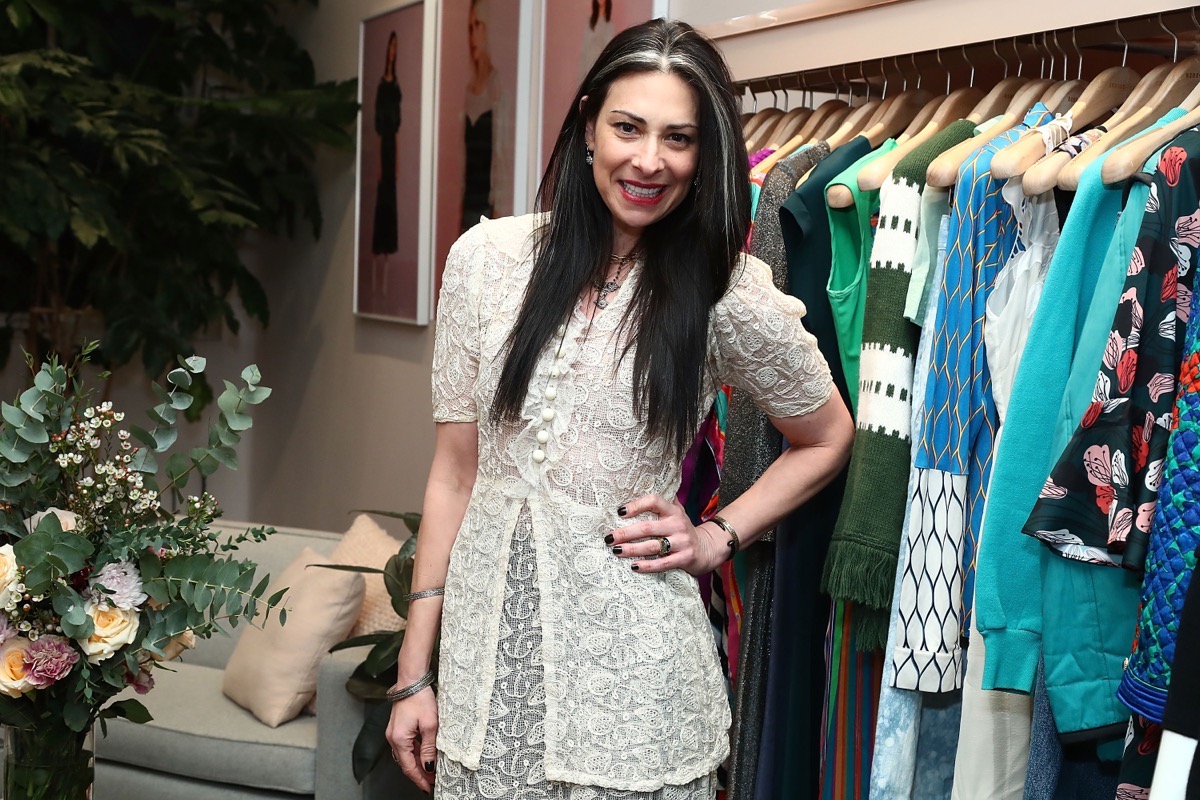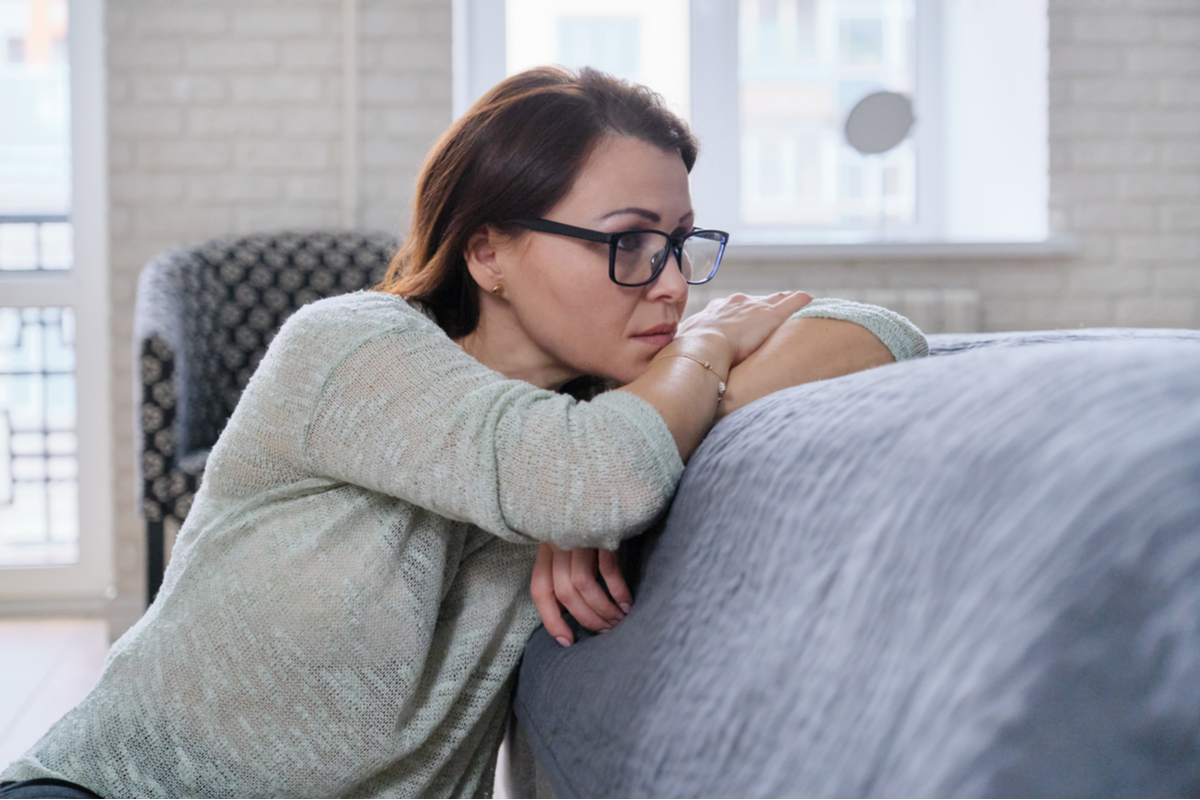Stacy London Thought She Had Alzheimer’s—This Is What It Really Was

You might know Stacy London best as co-host of the wildly popular makeover show What Not to Wear, which ran for 10 seasons on TLC starting in 2003. The hit series featured London and partner-in-crime Clinton Kelly ambushing unsuspecting fashion disasters and whisking them away for style advice and a shopping spree. But after the show ended, London had a health scare that changed the course of her career. Read on to find out what led her to believe she might have Alzheimer’s disease—and what common condition was really behind her symptoms.
RELATED: If You Can’t Remember These 4 Things, It Could Be an Early Alzheimer’s Sign.
She thought her menopause symptoms might be early Alzheimer’s disease.

Last year, London opened up about her journey with menopause, and specifically perimenopause—the period of time leading up to the end of menstruation. In an interview with Katie Couric Media (KCM), she said that after having spinal surgery in 2016, she struggled with anxiety and depression. “I thought it was all because of the physical trauma—this seven-and-a-half hour surgery—when actually, I was entering perimenopause,” she said. Perimenopause is the period of time when women’s bodies begin the transition to menopause, and changing hormone levels begin to cause a host of uncomfortable symptoms.
She began to have insomnia, night sweats, and brain fog—all common symptoms of menopause. Not yet 50 years old, London feared that her cognitive trouble could be a sign of something serious, and headed to the doctor. “I thought I had early Alzheimer’s,” she told KCM. “The idea that I could be speaking mid-sentence and forget what I was saying was absolutely bizarre.” As it turns out, it wasn’t so bizarre after all.
Lisa Mosconi, PhD, a neuroscientist and director of the Women’s Brain Initiative at Weill Cornell Medical College, told NPR’s TED Radio Hour that memory lapses are “a very common symptom” of menopause. “Hormones like estrogen are not only involved in reproduction, but also in brain function,” she explained. And since estrogen plummets during menopause, it makes sense that women might find themselves feeling forgetful.
The years leading up to menopause are difficult for many women.

Perimenopause can last anywhere from two to 10 years, according to Johns Hopkins Medicine. Although it usually starts when women are in their 40s, the Mayo Clinic says that symptoms may start even earlier, in the mid-30s. During this time, women’s bodies go through a number of changes that can bring a myriad of distressing symptoms, including trouble concentrating, difficulty sleeping, headaches, and mood swings.
As menopause—which is marked by the complete cessation of periods for one full year—approaches, women’s bodies produce less estrogen and their menstrual cycles become irregular.
For London, menopause symptoms included dry skin and brittle nails, as well as her hair breaking off. “In 2018, my father passed away,” she told KCM. “And while he was sick, I started to feel these pains that he was constantly feeling—rashes, joint pain, muscle fatigue, newly developed rosacea, eczema.” All of these, it turned out, were related to perimenopause.
Menopause can come with a lot of mixed emotions.

The end of our fertile years can bring relief for some women, as we no longer have to worry about birth control, menstrual cramps, or periods that catch us by surprise. For others, it can be a time of sadness, as certain doors close and we begin a new chapter of our lives. On her website, London shares more about her experience, saying menopause “came with the realization and grief that I could not (even if I wanted to) have children.”
However, that next chapter can also bring new possibilities—and for London, new passions. Not only has she reinvented herself professionally, she fell in love with musician Cat Yezbak, with whom she has been happily coupled up with since 2018.
RELATED: For more up-to-date information, sign up for our daily newsletter.
She’s now the founder and CEO of a company that’s all about menopause.

Frustrated by the lack of information about menopause, London took a leap when she got the opportunity to acquire a company that was developing products specifically for women going through menopause. “I was in tears by the end of the conversation because I was so overwhelmed with a feeling that there was actually something happening here,” she told Well+Good last year.
As the CEO of State of Menopause, London is determined to get the word out about what women can expect as they make the transition to menopause. The company not only offers products like face oil, supplements, and cooling sprays for hot flashes, they’ve sponsored a survey about women’s experiences with menopause. “Menopause isn’t talked about a lot,” London said. Part of her mission, she said, is to change that—and it seems she’s made a good start so far.
RELATED: 98 Percent of People With Alzheimer’s Develop This Symptom First, Study Says.